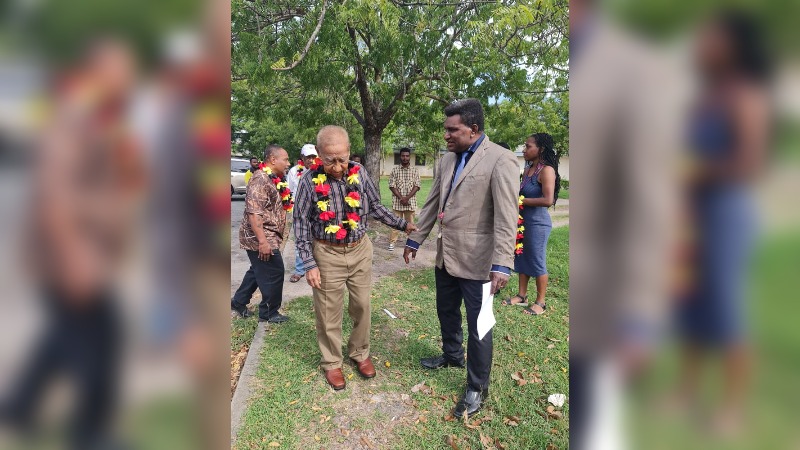New Ireland Governor Sir Julius Chan has proposed the ownership of minerals, oil and gas be transferred to the landowners that own the land.
He made this proposal when speaking to students at the University of Papua New Guinea recently, where he reinforced his thoughts on Resource Ownership, Autonomy and highlighting a number of Private member’s bills to be presented to parliament in the near future.
Sir J said most of the resource projects in the country have failed because they have not improved the lives of ordinary Papua New Guineans.
And this is because under the Mining Act 1992 the state owns all minerals contained in any water and lying on any land in Papua New Guinea.
He further stated the Oil and Gas Act 1998 also makes a similar declaration in respect to oil and gas reserves throughout PNG.
Sir J supported his stance by quoting from member of the early house of Assembly Percy Chatterton.
“The principle of State ownership is a figment of the imagination.” “No such principle exists.” “Under the common law of England we are told minerals belong to the owner of the land under which they are found.”
“State ownership of minerals violates both traditional PNG Law and British common law.”
Sir J agreed that the state has stolen the people’s resources, gives it away to foreign companies and then buys it back at exorbitant prices.
“The state cedes exploration and production rights to foreign companies for next to nothing.”
“Insignificant license fees are charged, often as little as K10,000 and royalties of 2% are levied.”
“But for this pittance the foreign developer gets full control of all the wealth that can be taken from the ground.”
“When a Mining Lease is granted, the company is effectively given ownership of all the minerals in the ground covered by the lease.”
He added that change in the resource law goes hand in hand with the introduction of the Autonomy law, empowering the Provinces to have greater control over their own resources.
Over the last two decades the New Ireland and East New Britain Provincial Governments have pursued Autonomy of the highest kind for their Provinces with a view to enhancing unity for Papua New Guinea.
This belief is captured in the East New Britain Palavat Document and the New Ireland Declaration, previously known as the Malagan Declaration, then Malagan Declaration Forward and the New Ireland Declaration.
In recent years the Enga Provincial Government joined the East New Britain and New Ireland Provinces.
The concept of Autonomy envisaged by our three Provinces is about sharing of powers and functions between the National Government and the Provinces and allows the Provinces to remain as an integral part of Papua New Guinea and to share the burden and the cost of Governing the country, through the sharing of wealth, grants and aid with the Government.
All proposed Bills highlighted by the esteemed team included; 1. Mining ( Amendment ) Bill 2023 2.
The Organic Law on Papua New Guinea’s Ownership of Hydrocarbons and Minerals and Consolidation and Commercialization of Papua New Guinea’s Business Law 2016 ( Repeal ) Law 3. Constitution (Amendment) Law for Hydrocarbons and Minerals 2023 4.
Land (Amendment) Bill 2023 5. New Ireland Autonomy Bill 2023 6.
Organic Law on Autonomous Governments 7.
Provincial Health Authority (Amendment Bill 2023) And the New Ireland University Bill 2023 to be presented by Minister for Higher Education, Science & Technology Hon. Don Polye.
Meanwhile the Guests were treated to scrumptious New Ireland style mumu after the briefing.

